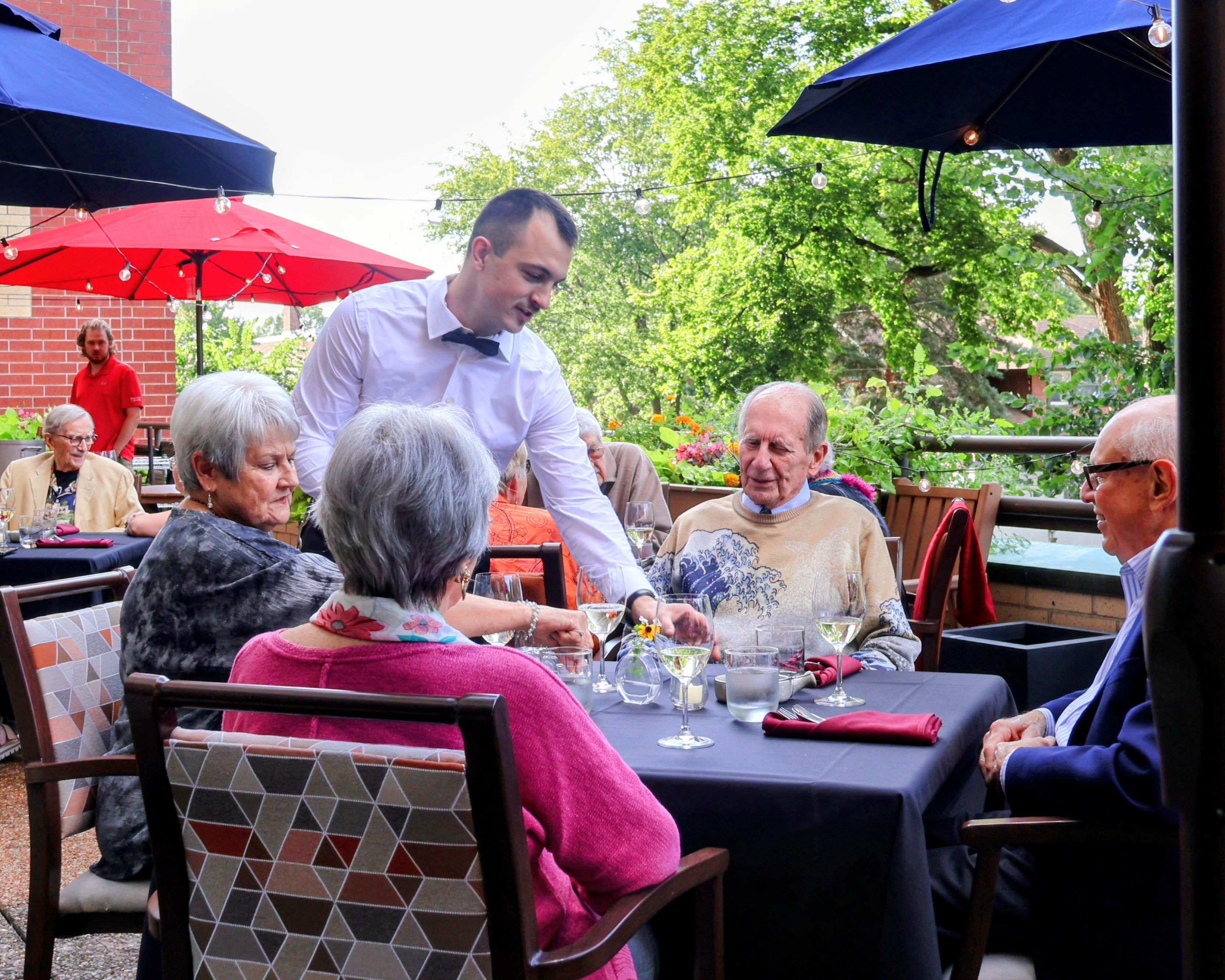Why it's important to learn as you age
Our ability to learn, discover, and explore helps us find meaning and purpose at every stage of life. Mastering a new recipe can bring a sense of accomplishment when you share it with family. Diving into a great book offers fresh insights to spark conversation at your next book club meeting. Lifelong learning isn’t just valuable—it’s essential for staying engaged, curious, and mentally strong.

Despite past beliefs, cognitive abilities don’t have to decline with age. In fact, keeping your brain active through ongoing learning can enhance mental sharpness and intellectual wellness well into your golden years.
Lifelong learning strengthens intellectual abilities
Research continues to show that older adults have resilient cognitive abilities. A 2023 study from the University of California, Riverside, demonstrated that older adults who learned multiple new skills simultaneously—such as Spanish, painting, and music composition—showed sustained cognitive improvements. Remarkably, these individuals achieved cognitive performance levels comparable to younger adults, suggesting that the brain remains adaptable and capable of growth throughout life.
Another 2023 study published in Scientific American highlighted that challenging yourself with new skills—whether it’s picking up an instrument, trying a new language, or learning a hobby—can help keep your mind just as strong as it was in your younger years.
These studies prove that intellectual abilities do not necessarily decline with age. Engaging in diverse and challenging learning experiences can enhance mental well-being and promote lifelong learning.
Why lifelong learning matters
Engaging in cognitively stimulating activities—like reading, watching documentaries, or exploring new hobbies—provides incredible benefits for brain health, including:
- Increased neuron growth – Learning something new stimulates neuron generation in the brain. Neurons send messages throughout your body, and boosting their function supports memory, focus, reasoning, and thinking skills.
- Lower risk of dementia – Cognitive stimulation strengthens brain health and may reduce the risk of Alzheimer’s and other forms of memory loss.
- Improved stress management – Reading a book, playing an instrument, or even doing puzzles can lower stress levels by reducing muscle tension and blood pressure. When stress is managed, it becomes easier to adapt to life’s changes and challenges.
- Increased social connection – Learning can be even more fun when shared. Book clubs, discussion groups, and lifelong learning courses foster social connections, keeping you engaged, active, and protected from feelings of isolation.
Your retirement years are the perfect time to explore your interests, develop new skills, and stay mentally engaged. And in a supportive senior living community, like those at Vivie, you can let go of daily maintenance tasks and focus on what brings you joy.
Discover an active lifestyle at Vivie
At Vivie, senior living is designed to empower you to focus on what you love. With amenities like wellness programs, engaging clubs, diverse dining options, and maintenance-free living, you can spend less time on chores and more time learning, growing, and staying active.
Ready for an enriching retirement? Let’s talk!

Vivie
Vivie is a care provider offering integrated services, including home health care, care management, senior living, rehabilitation, hospice, and more. With over 2,300 team members, Vivie serves more than 13,000 individuals annually across Minnesota, North Dakota, and Wisconsin. Rooted in faith and dedicated to transforming the way people live, age, and thrive, Vivie prioritizes compassionate care, excellence, and innovation.




